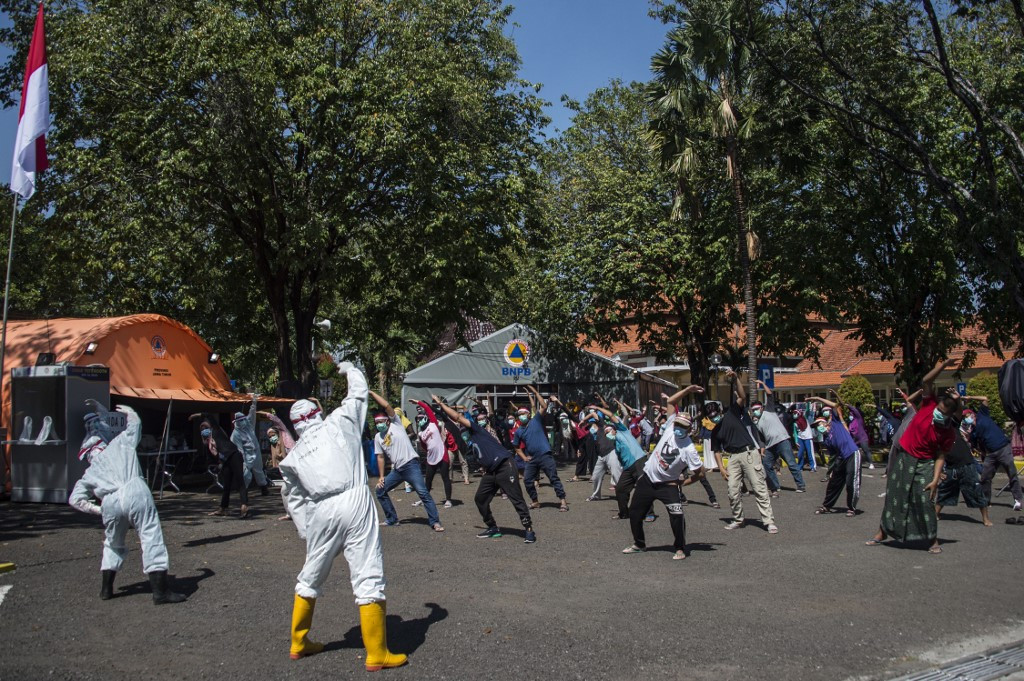Popular Reads
Top Results
Can't find what you're looking for?
View all search resultsPopular Reads
Top Results
Can't find what you're looking for?
View all search resultsAiling health system
Across the country the bed occupancy rate at hospitals is equally a cause for concern.
Change text size
Gift Premium Articles
to Anyone
W
hile the fact that more COVID-19 patients are now able to receive hospital treatment may appear like a positive sign, the reality is the country’s health system may struggle to keep up and begin to buckle if the rate of infection continues to increase.
As of Wednesday, 100,674 people had recovered from COVID-19 and been discharged from the hospital, according to the national COVID-19 task force, while more than 40,000 are currently receiving treatment across the country.
With the positivity rate – the percentage of tests that return a positive result – increasing, hospital overcrowding is an issue we must anticipate, unless drastic measures are taken to contain the virus. However, restrictions have been eased to enable the economy to bounce back and further relaxation of restrictions are on the horizon, given the government’s zeal for economic growth.
In Jakarta in particular, the rising infection rate is worrying.
Just recently Jakarta Governor Anies Baswedan said that 65 percent of the 4,456 beds in isolation wards and 67 percent of the 483 beds in intensive care units (ICUs) at COVID-19 referral hospitals across the city were now occupied. The capital has regained the top spot on the country’s provincial case tally after its average positivity rate jumped to 8.6 percent from below 5 before the large-scale social restrictions (PSBB) began to be eased in June.
At present, there are almost 9,000 active cases of COVID-19 in Jakarta, but only 2,559 are receiving treatment at hospitals due to limited capacity. Hospitals also have to allocate ICU beds for non-COVID-19 patients.
Across the country the bed occupancy rate at hospitals is equally a cause for concern. In many provinces, such as Central Java, South Sumatra, East Kalimantan and South Kalimantan, the rate has exceeded 50 percent and is nearing 60 percent. The rate has even reached 92 percent in far-flung Papua.
We can avoid hospital overcrowding if the country’s health support system, like community health centers (Puskesmas), works well. However, a number of Puskesmas have been closed indefinitely after its health workers contracted the virus.
Frontline health workers are at increased risk of infection. Not only have they have been stretched to their limits, but they are sometimes required to work without sufficient protective gear. As if to add insult to injury, many of them have not received the allowances promised by government because of drawn-out bureaucratic procedures.
Another problem that has gone unaddressed is the availability of ventilators at hospitals, which are vital when COVID-19 infection reaches its most critical levels.
The government can increase hospital capacity and provide more ventilators to deal with the soaring number of infections, but for how long can it keep up? By a low estimate, experts have said we will probably need 80,000 more hospital beds, including 12,850 ICU beds, and 6,300 ventilators.
The question is whether the government has enough money, not only to meet the rising demand for hospital care, but also to provide the sick with life-saving medication.










